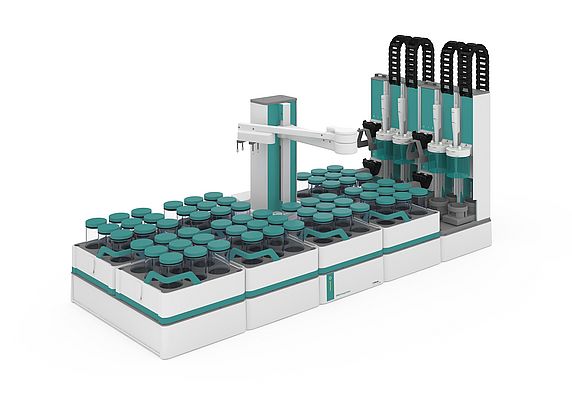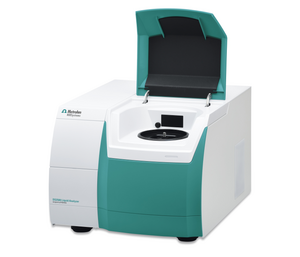OMNIS from Metrohm gives laboratories the flexibility to respond to new challenges as they arise. Hence, the platform can be expanded at any time to provide additional capacity for new applications and/or higher sample throughput. This is done by adding the required hardware, e.g. another titration module, another work station, or even a robotic autosampler to the existing platform.
Multitasking for more efficiency
Efficiency can be boosted with the possibility to perform several tasks in parallel. Here is an example: While a titration is performed in a sample on one workstation of the OMNIS Sample Robot, the next sample is already being prepared on another workstation. A third and fourth workstation may be used to further integrate the same application or to perform different ones - simultaneously. The modularity includes the possibility to increase sample throughput by automation. Hence, throughput can be pushed in increments from 50 to 125 to 175 samples based on the x-y-z system of the Sample Robot. Peak performance is defined by four titrations performed simultaneously at four workstations to analyze 175 samples completely unattended.
Maximum transparency for perfect control
Basically, OMNIS provides a construction kit of discrete functional steps, which can be freely combined and used over and over again. Thus, customized operating procedures can be built block by block with the least possible effort. Users want to know the concentration of parameters x, y, and z in their samples. In reality, this all too often means collecting results from different determinations or method specific data bases and aggregating them with considerable effort. Not so with OMNIS: All results are connected to the sample in the sample profile and shown to the user at a single glance. Measuring a particular sample may require several different methods to be performed in a specific order. If whole series of samples have to be analyzed, maintaining an overview becomes a challenge. Not so with OMNIS: Users can open the sample profile at any time to see, which samples (and parameters) have already been analyzed and which are next.



















